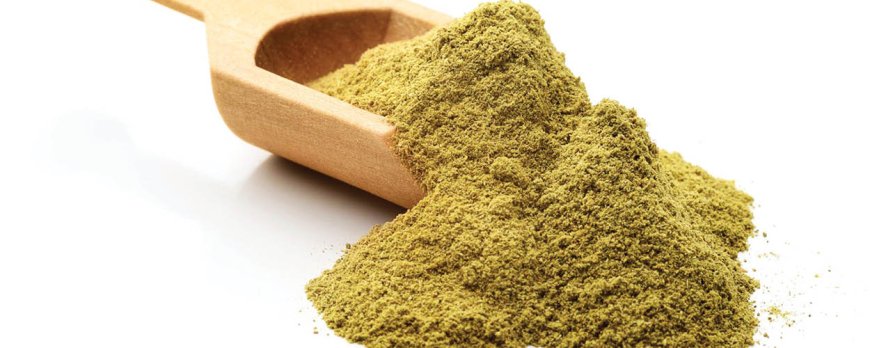Is ashwagandha good for sleep?
'Is ashwagandha good for sleep?' Discover the potential benefits of this ancient herb and how it might help promote restful nights.

Is ashwagandha good for sleep?
Ashwagandha, an ancient herbal remedy, has gained attention for its potential to improve sleep quality and help with sleep-related issues. Studies have shown that this herbal supplement can reduce sleep onset latency, increase sleep efficiency, improve total sleep time, and decrease wake after sleep onset. It is also well tolerated and safe for daily use at recommended dosages ranging from 125-600 mg.
Ashwagandha works by regulating the body's stress response and modulating neurotransmitters, which contributes to its sleep-inducing potential. In addition to promoting better sleep, ashwagandha has potential benefits such as reducing stress and anxiety, improving sperm concentration, and aiding in inflammation.
There are various forms of ashwagandha available, including powder, capsules, tablets, liquid extract, and tea. This allows individuals to choose the form that best suits their preferences and needs.
However, it's important to consult with a healthcare professional before starting ashwagandha, especially if you have underlying health conditions or are taking medications. They can provide personalized advice and ensure its safe use in your specific situation.
Key Takeaways:
- Ashwagandha has been found to improve sleep quality and help with sleep-related issues.
- Studies have shown that it can reduce sleep onset latency and increase sleep efficiency.
- Ashwagandha is well tolerated and safe for daily use at recommended dosages.
- It works by regulating the body's stress response and modulating neurotransmitters.
- Apart from improving sleep, ashwagandha may have additional benefits like reducing stress and anxiety, improving sperm concentration, and aiding in inflammation.

Understanding sleep disorders
Before delving into the benefits of ashwagandha for sleep, it's essential to understand the impact of sleep disorders on overall well-being. Sleep disorders, such as insomnia and sleep deprivation, can have a profound effect on physical and mental health. These conditions can lead to daytime fatigue, difficulty concentrating, mood disturbances, and decreased productivity.
Insomnia is the most common sleep disorder, characterized by difficulty falling asleep, staying asleep, or both. It can be caused by various factors, including stress, anxiety, certain medications, and underlying health conditions. Sleep deprivation, on the other hand, occurs when an individual consistently fails to get enough sleep, often due to lifestyle factors or a demanding schedule.
It is crucial to address sleep disorders effectively to ensure optimal well-being. Identifying and addressing the underlying causes of sleep disorders is key. This can involve lifestyle modifications, such as establishing a consistent sleep schedule, creating a conducive sleep environment, and practicing good sleep hygiene. In some cases, additional interventions, such as cognitive-behavioral therapy or medication, may be necessary.
By understanding sleep disorders and their impact, individuals can take steps to improve their sleep quality and overall health. In the next sections, we will explore the potential benefits of ashwagandha for sleep and how it may help promote restful nights.
The Science Behind Ashwagandha's Sleep-Inducing Potential
Numerous studies have shown promising results regarding ashwagandha's ability to improve sleep efficiency and reduce sleep onset latency. Research suggests that ashwagandha, an ancient herb with adaptogenic properties, can have a positive impact on sleep quality. One study conducted on individuals with insomnia found that ashwagandha supplementation led to improved sleep efficiency, which is the ratio of total sleep time to the total time spent in bed. Participants experienced reduced sleep onset latency, meaning they were able to fall asleep faster.
In another study, ashwagandha was found to decrease the amount of time spent awake during the night. This suggests that it may help reduce wake after sleep onset, allowing for more continuous and restful sleep. Additional research has shown that ashwagandha can increase total sleep time, ensuring individuals get the recommended amount of sleep needed for optimal health and well-being.
The mechanism behind ashwagandha's sleep-inducing potential lies in its ability to regulate the body's stress response. By reducing stress and anxiety, ashwagandha promotes relaxation, making it easier to achieve a state of calmness conducive to sleep. Moreover, studies have demonstrated that ashwagandha can modulate neurotransmitters like GABA, which plays a crucial role in promoting sleep. GABA helps to inhibit brain activity, leading to a feeling of tranquility and aiding in the process of falling asleep.
While further research is still needed to fully understand the mechanisms at play, these findings suggest that ashwagandha may be a natural and effective option for improving sleep efficiency and quality. As always, it is important to consult with a healthcare professional before starting any new supplement, especially if you have underlying health conditions or are taking medications. They can provide personalized advice and guidance based on your specific needs and circumstances.

Ashwagandha Dosage and Safety
Ashwagandha has been found to be well tolerated and safe for daily use at dosages ranging from 125-600 mg when used as directed. It is important to follow the recommended dosage guidelines provided by the manufacturer or consult with a healthcare professional to determine the appropriate dosage for your specific needs.
When starting ashwagandha, it is advisable to begin with a lower dosage and gradually increase it over time, as tolerated. This can help your body adjust to the herb and minimize the risk of potential side effects.
In terms of safety, ashwagandha is generally regarded as safe for most individuals. However, as with any supplement or herbal remedy, there are certain considerations to keep in mind. It is recommended to consult with a healthcare professional before starting ashwagandha, especially if you have underlying health conditions or are taking medications. They can provide personalized advice and guidance based on your individual health status.
Additionally, it is important to note that ashwagandha may interact with certain medications, such as sedatives, immunosuppressants, and thyroid medications. Therefore, it is crucial to inform your healthcare provider about all the medications you are currently taking to avoid any potential interactions.
The Mechanism of Action
Ashwagandha exerts its sleep-inducing effects by modulating neurotransmitters and helping the body cope with stress more effectively. This ancient herb has been found to have anxiolytic properties, reducing levels of cortisol, the primary stress hormone, and promoting a state of relaxation that is conducive to sleep. By modulating neurotransmitters like GABA (gamma-aminobutyric acid) and serotonin, ashwagandha can calm the mind, alleviate anxiety, and promote a sense of calmness.
The stress response plays a significant role in sleep disruption, and ashwagandha directly targets this mechanism by inhibiting the release of corticotropin-releasing hormone (CRH), a key mediator of the stress response. By reducing the activity of CRH, ashwagandha helps to rebalance the body's stress response system, allowing for a smoother transition into sleep and improving overall sleep quality.
Furthermore, ashwagandha has been found to enhance the function of brain-derived neurotrophic factor (BDNF), a protein that supports the growth and maintenance of neurons. This neuroprotective effect can help to optimize brain health and function, potentially leading to improved sleep quality.
The Role of Ashwagandha's Mechanism of Action
- Modulation of neurotransmitters like GABA and serotonin
- Reduced levels of cortisol, the primary stress hormone
- Inhibition of CRH, a key mediator of the stress response
- Enhancement of brain-derived neurotrophic factor (BDNF) function
In summary, ashwagandha's mechanism of action involves modulating neurotransmitters, reducing stress hormones, and supporting optimal brain health. By addressing these factors, ashwagandha can play a crucial role in improving sleep quality and promoting restful nights.

Additional Benefits of Ashwagandha
Aside from its sleep-promoting properties, ashwagandha has shown potential in various other areas, such as stress reduction, anxiety relief, and improving certain health conditions. Stress is a common issue in today's fast-paced lifestyle, and ashwagandha has been found to help lower stress levels by regulating cortisol, a hormone associated with stress. By reducing stress, ashwagandha may also have an indirect effect on improving sleep quality.
Furthermore, research suggests that ashwagandha may have an anxiolytic effect, which means it can help alleviate symptoms of anxiety. This could be beneficial for individuals who struggle with anxiety-related sleep disorders or experience restlessness before bedtime. Incorporating ashwagandha into your routine may help promote a sense of calm and relaxation, leading to better sleep.
In addition to stress reduction and anxiety relief, ashwagandha has shown promise in improving certain health conditions. For example, studies have suggested that ashwagandha can increase sperm concentration and motility, making it a potential option for men experiencing infertility issues. It has also been found to possess anti-inflammatory properties, which may benefit individuals dealing with inflammation-related conditions, such as arthritis or autoimmune disorders.
With its wide range of potential benefits, ashwagandha has gained popularity as a natural remedy for promoting overall well-being. It is important to note that while ashwagandha has shown promising results in various studies, further research is still needed to fully understand its mechanisms and confirm its efficacy. As always, it is recommended to consult with a healthcare professional before incorporating ashwagandha into your routine, especially if you have underlying health conditions or are taking medications.
Different forms of ashwagandha
Ashwagandha, a powerful herbal remedy known for its sleep-inducing potential, can be consumed in a variety of forms. This allows individuals to select the most convenient option that suits their lifestyle and preferences. Whether in the form of powder, capsules, tablets, liquid extract, or tea, ashwagandha offers flexible choices for those seeking its beneficial effects.
Powder
Ashwagandha powder is a popular choice due to its versatility. It can be easily mixed into smoothies, juices, or warm beverages, allowing for a seamless incorporation into daily routines. This form provides a convenient way to consume ashwagandha while benefiting from its sleep-inducing properties.
Capsules and Tablets
For individuals looking for a more straightforward and precise method of consumption, ashwagandha is available in capsule or tablet form. This allows for easy and accurate dosing, making it convenient for those who prefer a simple and hassle-free approach to incorporating ashwagandha into their daily routine.
Liquid Extract and Tea
If you prefer a more traditional approach, ashwagandha is also available in the form of liquid extract and tea. These options offer a soothing and aromatic experience, creating a relaxing ritual to enhance your sleep routine. The liquid extract can be added to warm water, while ashwagandha tea offers a calming herbal infusion to promote restful nights.
Whether you choose ashwagandha powder, capsules, tablets, liquid extract, or tea, incorporating this herbal remedy into your daily routine can provide potential sleep benefits. It is essential to consult with a healthcare professional before starting any new supplements, especially if you have underlying health conditions or are taking medications. They can offer personalized advice and guidance to ensure ashwagandha is a safe and suitable option for you.

Considerations before starting ashwagandha
It is advisable to seek guidance from a healthcare professional before incorporating ashwagandha into your routine, especially if you have existing health conditions or are taking medications. While ashwagandha has been found to have sleep-inducing potential and various other potential benefits, it is important to ensure it is safe and suitable for your individual circumstances.
Consulting a healthcare professional will allow them to assess your specific health situation and advise you on the appropriate dosage and form of ashwagandha to use. They can also provide guidance on potential interactions with medications you may be taking, avoiding any negative effects or interference.
If you have underlying health conditions, such as diabetes, thyroid disorders, or autoimmune diseases, it is particularly important to seek professional advice as ashwagandha may affect certain medical conditions or interact with specific treatments. Additionally, if you are pregnant, breastfeeding, or planning to conceive, it is essential to consult with your healthcare provider before using ashwagandha, as its safety in these situations has not been extensively studied.
By working closely with a healthcare professional, you can ensure that ashwagandha is used safely and effectively, tailored to your unique needs and circumstances. They can provide personalized recommendations and monitor your progress to ensure optimal results while minimizing potential risks.
User Experiences and Testimonials
Many individuals have reported positive experiences with ashwagandha, sharing their testimonials on how it has improved their sleep quality. These firsthand accounts provide valuable insights into the potential benefits of ashwagandha for sleep.
One user shared that incorporating ashwagandha into their nightly routine has significantly reduced their sleep onset latency, allowing them to fall asleep faster. They found that their sleep quality improved, with fewer interruptions during the night and a greater feeling of restfulness upon waking. This individual also noted a decrease in overall anxiety levels, which they attributed to ashwagandha's stress-reducing properties.
Another user expressed how ashwagandha has helped them manage their insomnia more effectively. They reported experiencing longer and more continuous periods of sleep after incorporating ashwagandha into their daily regimen. This has led to increased daytime energy and improved focus, allowing them to be more productive throughout the day. They also noted that their general sense of well-being has improved since starting ashwagandha.
Several testimonials also highlighted ashwagandha's potential in supporting individuals with sleep deprivation. Users shared that ashwagandha helped them establish a more regular sleep schedule and improved their ability to fall asleep quickly. They noted feeling more refreshed and rejuvenated upon waking, even after a shorter duration of sleep. This has allowed them to better manage their busy lifestyles without compromising their sleep quality.
In summary:
- Ashwagandha has been reported to reduce sleep onset latency and improve the overall quality of sleep.
- Users have experienced fewer interruptions during the night and increased feelings of restfulness upon awakening.
- Many individuals have seen a reduction in anxiety levels and improved overall well-being.
- Ashwagandha has shown potential in managing insomnia and sleep deprivation, allowing for longer and more continuous periods of sleep.
- Users have noted increased daytime energy, improved focus, and enhanced productivity.
These user experiences and testimonials highlight the potential benefits of ashwagandha for sleep. While individual results may vary, it is encouraging to see the positive impact ashwagandha has had on improving sleep quality for many individuals.
Tips for Optimizing Sleep Hygiene
Alongside incorporating ashwagandha into your routine, adopting good sleep practices can further enhance the quality of your sleep. Here are some tips to optimize your sleep hygiene:
- Establish a Consistent Sleep Schedule: Try to go to bed and wake up at the same time every day, even on weekends. This helps regulate your body's internal clock and promotes better sleep.
- Create a Relaxing Bedtime Routine: Engage in calming activities before bed, such as reading a book, taking a warm bath, or practicing relaxation techniques like deep breathing or meditation. This signals to your body that it's time to wind down and prepare for sleep.
- Create a Comfortable Sleep Environment: Make sure your bedroom is cool, dark, and quiet. Use curtains or an eye mask to block out any light, earplugs or white noise machines to minimize noise disturbances, and a comfortable mattress and pillow for optimal support.
- Avoid Stimulants and Electronics: Limit your consumption of caffeine, nicotine, and alcohol, especially close to bedtime. Additionally, avoid using electronic devices, such as smartphones and tablets, as the blue light emitted can interfere with melatonin production and disrupt sleep.
- Exercise Regularly: Engaging in regular physical activity during the day can promote better sleep at night. However, try to avoid intense exercise close to bedtime, as it may increase alertness and make it harder to fall asleep.
- Create a Sleep-Friendly Diet: Avoid heavy, greasy meals and spicy foods close to bedtime, as they can cause indigestion and discomfort. Instead, opt for lighter, sleep-supportive foods like whole grains, fruits, and vegetables.
- Manage Stress and Anxiety: Incorporate stress-management techniques into your daily routine, such as deep breathing exercises, journaling, or practicing mindfulness. This can help calm your mind and prepare it for a restful night's sleep.
By implementing these tips, along with incorporating ashwagandha into your routine, you can improve your sleep hygiene and experience more restful nights. Remember to consult with a healthcare professional before starting any new supplement or making significant changes to your sleep routine, especially if you have underlying health conditions or are taking medications.
Conclusion
Ashwagandha shows promise in improving sleep quality and promoting restful nights, making it a potential natural solution for those struggling with sleep issues. Research studies have demonstrated that ashwagandha can effectively reduce sleep onset latency and increase sleep efficiency, resulting in improved total sleep time and decreased wake after sleep onset.
Studies have also shown that ashwagandha is well tolerated and safe for daily use at dosages ranging from 125-600 mg. By regulating the body's stress response and modulating neurotransmitters, ashwagandha works to promote better sleep.
In addition to its sleep-inducing potential, ashwagandha offers other potential benefits including stress reduction, anxiety relief, improved sperm concentration, and anti-inflammatory properties. This versatile herb is available in various forms such as powder, capsules, tablets, liquid extract, and tea, providing options for individuals to choose based on their preferences.
However, it is important to note that before starting ashwagandha, it is advisable to consult with a healthcare professional, especially if you have underlying health conditions or are taking medications. They can provide personalized guidance and ensure that ashwagandha is safe and appropriate for your specific circumstances.
FAQ
Is ashwagandha good for sleep?
Yes, studies have shown that ashwagandha has sleep-inducing potential and may improve sleep quality.
What are the potential benefits of ashwagandha for sleep?
Ashwagandha can reduce sleep onset latency, increase sleep efficiency, improve total sleep time, and decrease wake after sleep onset.
How much ashwagandha should I take for sleep?
The recommended dosage ranges from 125-600 mg and is generally well tolerated for daily use.
How does ashwagandha work to improve sleep?
Ashwagandha works by regulating the body's stress response and modulating neurotransmitters.
Are there any other benefits of taking ashwagandha?
Yes, ashwagandha may also help reduce stress and anxiety, improve sperm concentration, and aid in inflammation.
In what forms is ashwagandha available?
Ashwagandha is available in various forms, including powder, capsules, tablets, liquid extract, and tea.
Should I consult with a healthcare professional before starting ashwagandha?
It is recommended to consult with a healthcare professional, especially if you have underlying health conditions or are taking medications.


































































































































